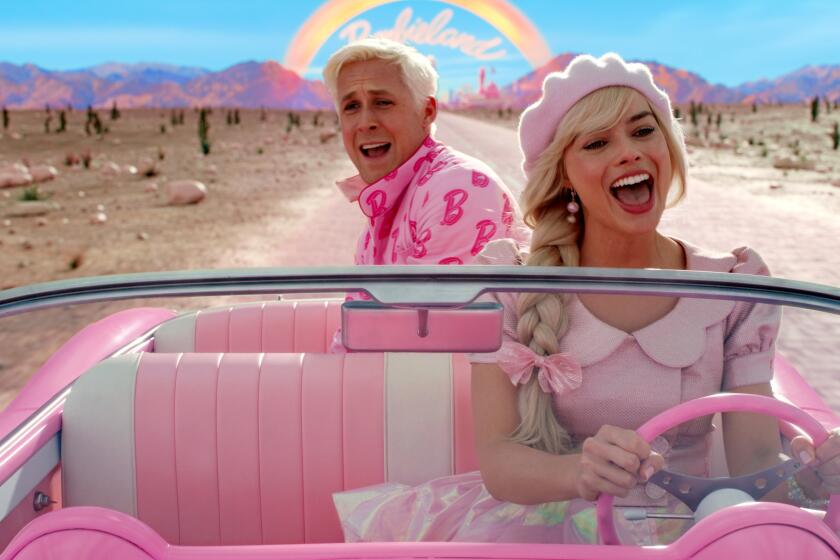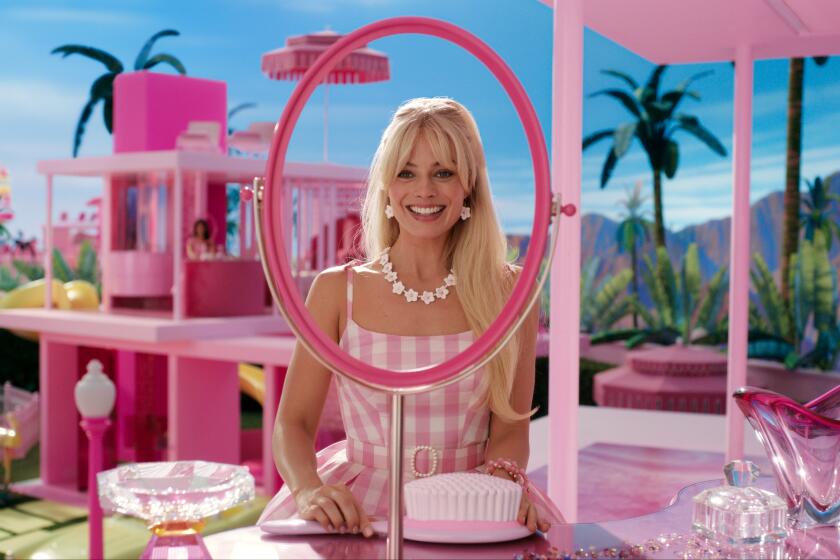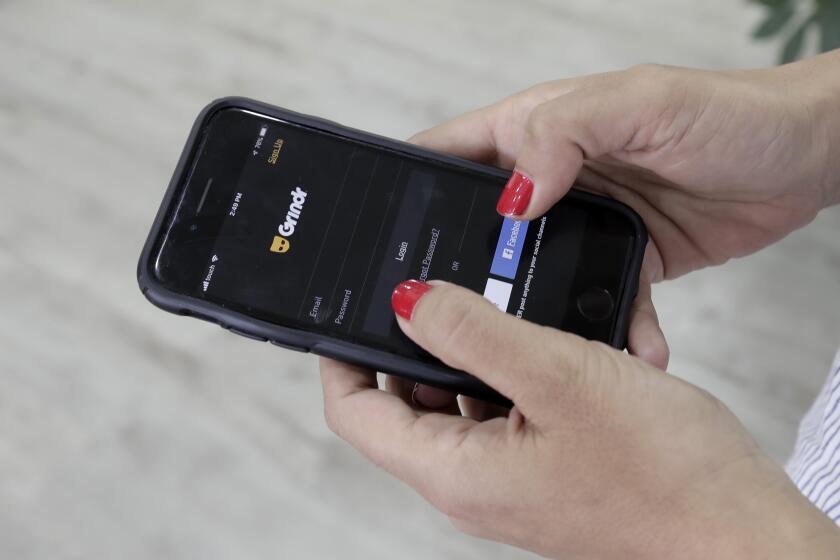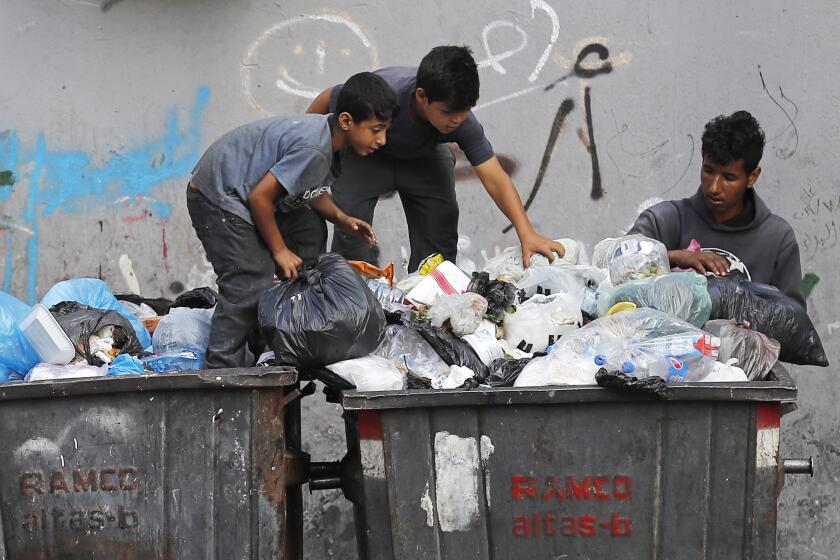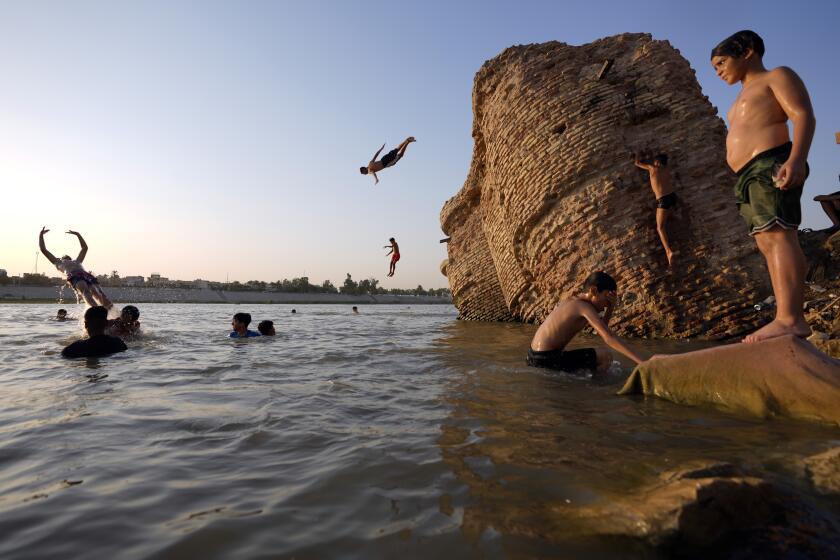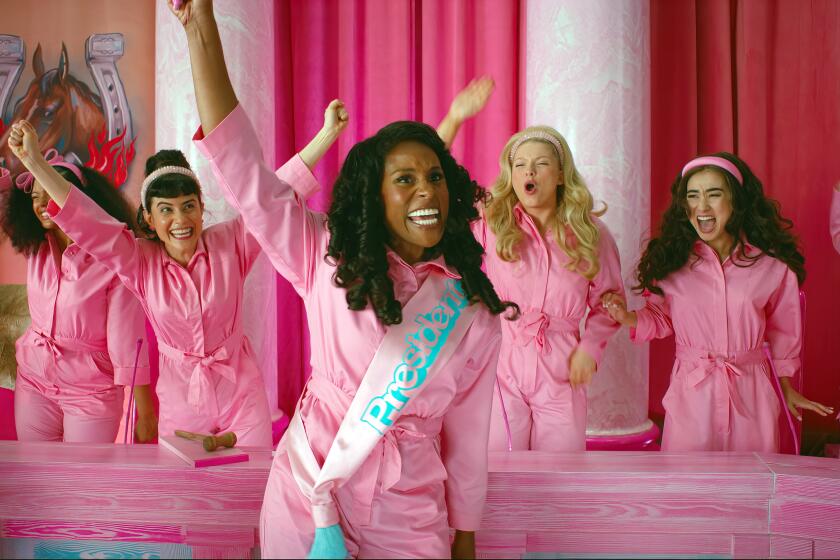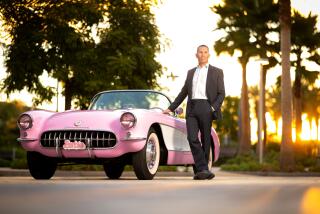This Barbie is being censored. The filmâs rollout in the Arab world hits a snag
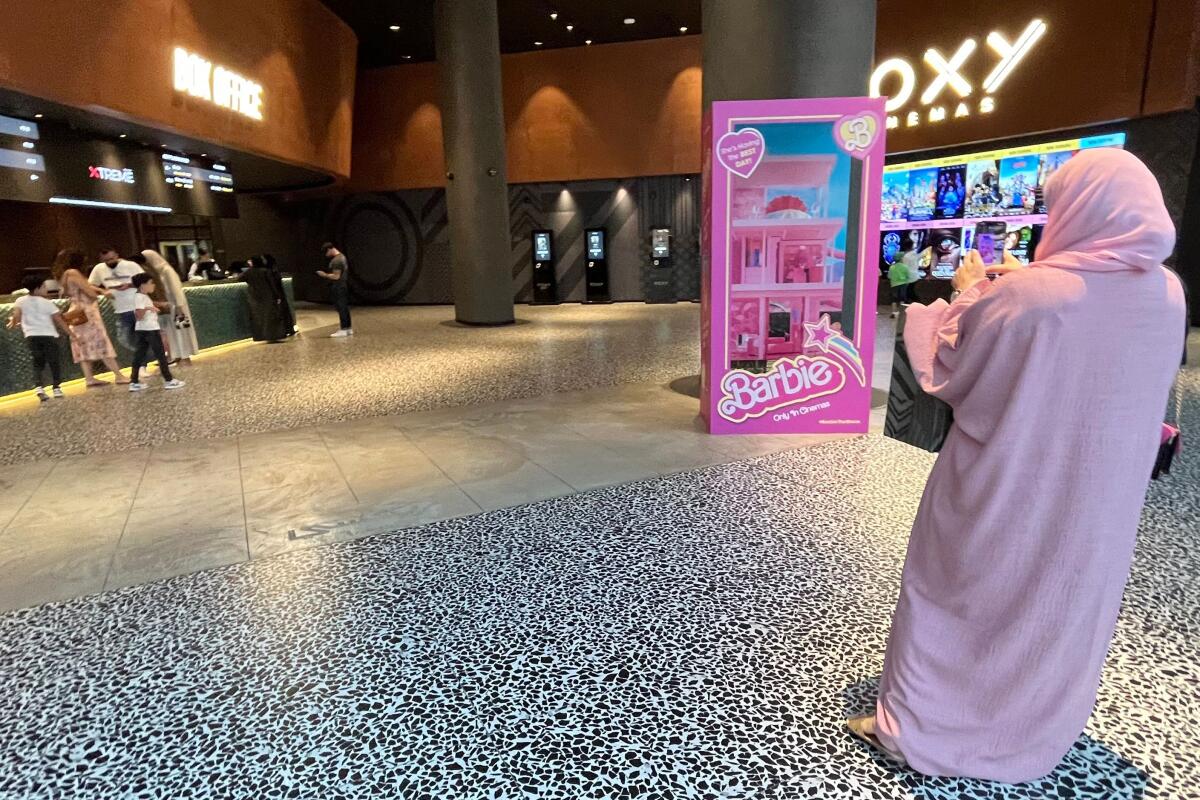
BEIRUT â The plan for the âBarbieâ movieâs debut across the Arab world was to go big. Anticipating a deluge of moviegoers, promoters prepped pink popcorn boxes, pink slushy drinks, a human-sized Barbie-toy box and even pink abayas for female fans in Saudi Arabia.
Then came the delays.
âWe were told we had to postpone opening, but no one knew why,â said Anis Tabet, a Beirut-based film critic and promoter.
The movie, which opened globally in July and has raked in $1.34 billion at the box office, was the latest targeted by the regionâs censors. There was no official reason given for delays, but many speculated they were so cuts could be negotiated. âBarbieâ opened in August in Saudi Arabia, the United Arab Emirates, Egypt, Jordan and Bahrain. (Any alterations were not immediately apparent, and Warner Bros. had no comment about the delays.)
But the movie has been banned in Kuwait and Oman and pulled from theaters after a brief run in Algeria. Itâs still unclear whether it will show in Qatar or Lebanon.
If one of the primary marks of todayâs movies and politics is the culture wars over identity and orientation, Barbieland is a major battlefield. In the U.S., right-wing figures accuse âBarbieâ of being âwokeâ and anti-man, while others insist it doesnât go far enough on the feminist front.
California politicians get in on the âBarbenheimerâ meme, using âBarbieâ to promote their causes.
The Arab world too has joined the frenzy of hot takes â including national censorship boards, whose decisions on whether films can run often serve as bellwethers for how liberal or conservative a country has become.
Movies have long been chopped up to excise explicit scenes, sometimes including kissing, or on political or religious grounds. Some Arab countries refused to screen âWonder Womanâ or any other movie featuring the Israeli actress Gal Gadot, and in 2018, Christian groups got the horror movie âThe Nunâ banned in Lebanon.
Politics and China play a major part in the reason the the live-action âBarbieâ has been banned from theaters in Vietnam ahead of its July 21 release.
But in the case of âBarbie,â the main snag was concern over LGBTQ+ messaging. (The filmâs cast includes one transgender actress and several gay members, but has no explicit LGBTQ+ content.)
âIn the U.S., cultural appropriation â whether the Little Mermaid is a Black girl or white girl â is a big topic. Here theyâre less interested in that,â said Ignace Lahoud, chief executive of Majid Al Futtaim Leisure, Entertainment & Cinemas, the regional distributor of âBarbieâ and also an exhibitor.
âIn the last couple of years, most of the issues with censorship have been related to LGBTQ references.â
This summer, âSpider-Man: Across the Spider-Verseâ was banned in all Arab countries except Tunisia over a three-second clip showing a poster in the background with the words âProtect Trans Kids.â Last year, it was Disney and Pixarâs âLightyearâ for a same-sex kiss, along with âDoctor Strange 2,â which was banned in Saudi Arabia, Egypt and Jordan over one character having two mothers. Before that, it was âThe Eternals,â a Marvel movie featuring a gay superhero raising a child with his husband. Much of that content was proscribed from streaming on Disney+ in the region.
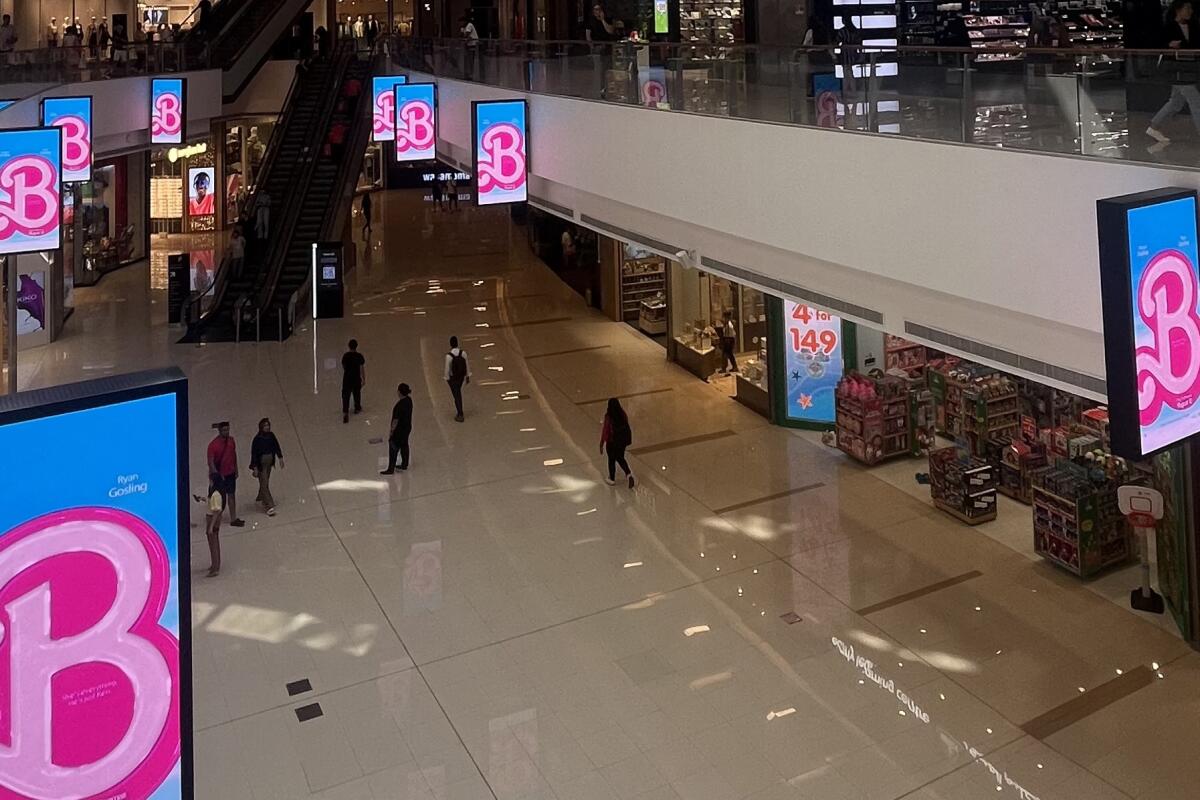
But whereas those films elicited little discussion, the arrival of âBarbieâ coincides with a surge of anti-gay fervor that has been galvanizing politicians and commentators across the Middle East the last few weeks.
ââBarbieâ has become part of a broader game. Itâs not about the movie, but about LGBTQ, trans and gender fluidity,â said Ayman Mhanna, executive director of the Samir Kassir Foundation, a Beirut-based rights organization.
One of the more surprising broadsides came from Lebanon, traditionally the regionâs most liberal nation. (Beirut had its first Pride parade in 2017.)
Governments in the Middle East and North Africa are using social media platforms and dating apps to crack down on LGBTQ people, a rights group says.
The countryâs minister of culture, Mohammad Mortada, called on the censorship board to block âBarbieâ because he said it âpromotes sexual deviance and transsexuality,â employing a slur to refer to gay people. Mortada â affiliated with the Lebanese militant group and Shiite political party Hezbollah, which the U.S. deems a terrorist organization â also said the movie âchallenged traditional gender norms, while also criticizing the concept of male guardianship and ridiculing the role of mothers.â
Though they spurred widespread derision, the ministerâs comments added to a rare, ecumenical consensus among Lebanonâs famously fractious political class.
Last week, a group of Christian vigilantes calling themselves Jnoud El Rab, or the Soldiers of God, attacked an LGBTQ+-friendly club in Beirut when it held a drag show. Last month, Hezbollah chief Hassan Nasrallah characterized homosexuality as âperversionâ and a threat to the country. A figure from an anti-Hezbollah political bloc recently called for a law criminalizing âthe promotion of homosexuality.â The minister of education went so far as to ban the game Snakes & Ladders from summer school activities because the boardâs colors looked like a Pride flag.
Free speech? Haha, no. The banning of AlHudood, the Middle Eastâs answer to the Onion, signals a new censorship trend in the Arab world â satire be damned.
Elsewhere in the region it was much the same. In Iraq, lawmakers in August required all media outlets, phone and internet companies in the country to replace the word âhomosexualityâ with âsexual deviance.â They are also considering a bill that would punish same-sex relations with life in prison or death, âimitating womenâ with three years in prison and âpromoting homosexualityâ with at least seven.
Even in countries where âBarbieâ was shown, politicians pushed authorities to revoke its permissions. One Jordanian lawmaker wanted it banned because it supported âwrong ideas like homosexuality and feminism.â In Bahrain, Hassan Husseini, an Islamic preacher with millions of followers on social media, castigated the movie for ârevolting against the idea of marriage and motherhoodâ and its depiction of men âwithout manhood.â Others said the film peddled âWestern deviancesâ such as undermining traditional gender norms.
Amid all the vociferous opinions, some just want a chance to see for themselves.
âI canât imagine âBarbieâ is promoting all that. And so what if it does? All over the Arab world we have this patriarchal, conservative society. It just feels so silly. Itâs a movie. Who cares?â said Julianna Aoun, a 32-year-old postdoctoral student in the United Kingdom who is home in Beirut for the summer.
âIâd like to see it here in Lebanon. Thereâs a symbolism in that,â she said.
One personâs trash is definitely another personâs treasure in Lebanon, but record inflation and the tanking economy have made finding it a lot harder.
Ibrahim Khatib, 21, said such bans were pointless with piracy and streaming making everything available anyway. Besides, the grand majority of those castigating âBarbieâ hadnât seen it, he said, adding that he would like to.
âIf this film plays, they say itâs against our traditions. Itâs obviously not a threat, but this is how they think,â he said. âEither way, this film wonât change society.â
On the other hand, Sandra, a 34-year-old Beirut resident, doesnât believe a movie about a plastic toy should have messages involving sexuality. Though she hasnât seen the movie, she agreed with the PG-15 rating the movie received in Saudi Arabia.
âIt doesnât have to be highlighted and exaggerated,â said Sandra, who asked that her last name not be used, fearing backlash at her job. âIf I saw a heterosexual couple kissing in the middle of a cafe, I would think, âget a room.â This is the same. The time will come when kids have to think of that.â
In a nod to the regionâs shifting dynamics, one prominent Egyptian commentator noted that Kuwaitis were now driving to Bahrain to watch the movie â when a few years back it would have been the other way around.
That the movie opened in Riyadh before Beirut, many pointed out, seemed both a comment on how Lebanonâs successive crises destroyed the tolerance that once marked it as the Arab worldâs artistic lodestar, and the rapid-fire changes that transformed Saudi Arabia from a country where cinemas didnât exist less than a decade ago to the Middle Eastâs biggest box-office market.
The increased scrutiny of LGBTQ+-related content comes at an awkward time for the Middle Eastâs nascent cinema industry, especially when the blockbusters that drive a large portion of exhibitorsâ revenue are banned.
As summer temperatures soar, supplying electricity has become an intractable problem for countries like Iraq and Iran, where people sweat and stew.
Studios have become less willing to cut up a film to cater to local sensitivities, said David Hancock, a film and cinema analyst at London-based Omdia.
âNow filmmakers have more power. Theyâve done this more and more where they say they wonât make changes,â he said. âIf you start to demand changes in every film, and there are 130 films released annually by the majors, then changing every film for every country amounts to a lot of work.â
It falls to distributors to act as the link between censorship boards and studios, aiming to find solutions that allow them to showcase the movie while not changing its integrity, Lahoud said.
âSometimes you get into a position where itâs the director who doesnât want to change a line. Sometimes itâs not even a line, just a visual reference or a scene. Sometimes itâs just a matter of translation,â he said.
âItâs not a binary situation. Often we get refusal. Go back. Negotiate. And we end up getting the movies passed.â
âBarbieâ has officially surpassed âThe Super Mario Bros. Movieâ as the highest-grossing domestic release of 2023. âGran Turismoâ debuted at No. 1.
Some of that reluctance is born of fears of provoking a backlash. Thatâs what happened to âTop Gun: Maverick.â When the movieâs trailer released in 2019, a Taiwan flag on Tom Cruiseâs jacket had been scrubbed out, presumably to allow it to be screened in China. But after accusations of pandering to Beijing, which views Taiwan as its territory, the flag was restored in the movie. âMaverickâ didnât end up playing in China, the worldâs biggest movie box office with $7.3 billion in revenue in 2021 â but it still did spectacularly well in theaters. Paramount did not respond to a request for comment.
Though âBarbieâsâ momentum has been waning more than five weeks after its global opening, Tabet, the film critic and promoter, and other exhibitors were still eager for the film to open in remaining regional markets.
In Lebanon, it had been cleared to premiere Thursday. But as the day approached, word came to exhibitors that the filmâs release would probably be postponed, and on Thursday, Lebanese cinema websites removed âBarbieâ from their âComing soonâ pages. It also wouldnât be opening in any of the other last regional markets.
âWe still donât know if itâs going to open tomorrow in Beirut. Nothing is clear,â an employee at Grand Cinemas, one of several exhibitors operating in the region, said Wednesday. She declined to give her name because she was not authorized to speak to the media.
For now, many of the pink popcorn boxes and human-sized Barbie-toy boxes will remain in storage.
More to Read
Sign up for Essential California
The most important California stories and recommendations in your inbox every morning.
You may occasionally receive promotional content from the Los Angeles Times.
